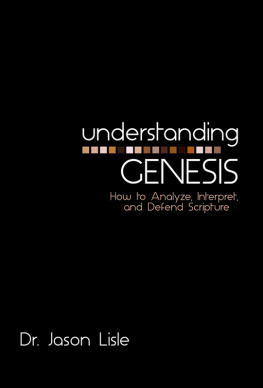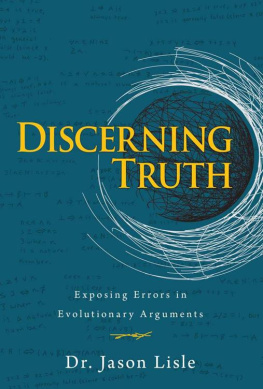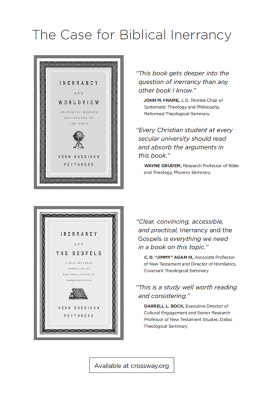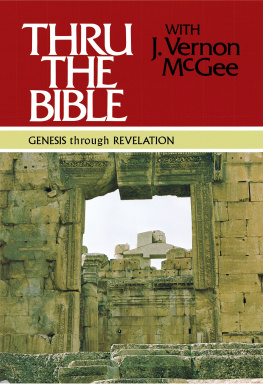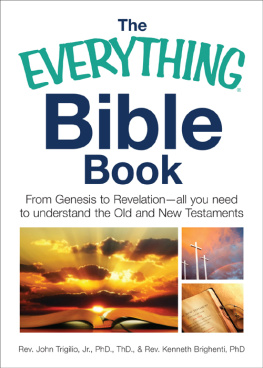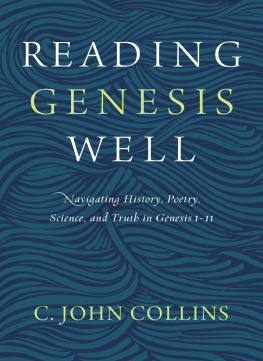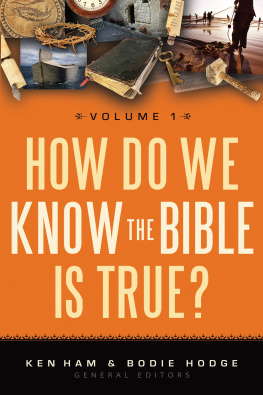First printing: July 2015
Copyright 2015 by Jason Lisle. All rights reserved. No part of this book may be used or reproduced in any manner whatsoever without written permission of the publisher, except in the case of brief quotations in articles and reviews. For information write:
Master Books, P.O. Box 726, Green Forest, AR 72638
Master Books is a division of the New Leaf Publishing Group, Inc.
ISBN: 978-0-89051-900-4
Library of Con gress Number: 2015909401
Cover by Diana Bogardus
Unless otherwise noted, Scripture quotations are from the New American Standard Bible.
Please consider requesting that a copy of this volume be purchased by your local library system.
Printed in the United States of America
Please visit our website for other great titles:
www.masterbooks.com
For information regarding author interviews,
please contact the publicity department at (870) 438-5288.

Acknowledgments
I thank my friends and family for their support and encouragement as I wrote this book, and for helpful feedback. I especially want to thank Dr. Ken Gentry and Dr. Jim Johnson for reviewing various sections of this book and for providing helpful suggestions. Their expertise was essential in honing my arguments and in reducing mistakes. Any remaining errors are mine alone. I thank the Lord Jesus for His gracious salvation, His forgiveness of my sins, and for calling me to share and defend His Word.
Contents
Introduction
Thats your interpretation! The Bible doesnt really mean what you think it does. Such statements are common today when disputes arise over biblical issues. Its no longer enough to say, Thus says the Lord, because people will respond, But what does the Lord really mean by what He says? You are not interpreting the passage properly. Is the Bible really so hard to understand? People can only obey the Scriptures and respond to the gospel to the extent that they correctly understand the Scriptures. So, the correct interpretation of Scripture is not merely an academic issue. It is a matter of eternal life and death. In our age of rampant post-modernism, the faithful Christian must not only defend the inerrancy of the Bible, but must also defend its proper interpretation.
This is perhaps most obvious in modern interpretations of the first book of the Bible: Genesis. Does the Bible really teach that God created in six days, or were such days symbolic of long periods of time? Does Genesis really suggest that God separately and supernaturally created every kind of creature on earth, or is such language merely an allegory for God-guided evolution? Was Adam a real person, or simply a metaphor? Did physical death enter the world at the time of Adams sin, or was this merely spiritual death? Was Noahs Flood really global in extent, or merely local? At no time in the history of the world have such questions been as relevant as they are today. Our need to be able to answer these questions and logically defend our position has never been greater.
But are such answers even possible? The post-modern mindset is deeply entrenched in our culture today, such that some people will treat the meaning of a biblical text as if it is subjective relative to the person. Perhaps you have heard someone say, Thats not what the text means to me . Another person might say, Thats true for you perhaps, but not for me. Its disheartening, but sometimes even Bible study leaders will ask, What does this passage mean to you ? Can a Bible verse really mean different things to different people? Clearly, a biblical teaching might be applied differently to different situations. But can the meaning of a passage differ from person to person? On the other hand, if the text has one meaning, then why do people not always agree on what that meaning is? Why are there so many denominations of Christianity with such differing views on what the Bible actually means? Can we really know for certain what the author of Genesis intended? And if so, can we defend the proper interpretation of Genesis against those who have a compromised view?
Interpreting a Clear Text
It is my conviction that the Bible has one correct interpretation the meaning intended by the author. And I submit that Almighty God knows how to communicate clearly with His creations, and that He has done so in the Bible. I will give reasons for this position later; for now, the skeptical reader may consider this claim as a hypothesis. If this view is indeed true, then the main portions of Gods Word should not be hard to understand. Though there are some difficult passages that require careful study, I submit that the ordinary, literate person can read and grasp the main-and-plain basic doctrines of the Bible. And I intend to demonstrate this in the chapters that follow.
But I must first address a very common objection to this position: If the Bible is so clear, then why are there so many disagreements on what it means? We must admit that there are numerous denominations of Christianity with their various doctrinal positions. And there are countless cults that profess to believe the Bible while disagreeing on some very fundamental issues. Even within a conservative denomination there are often disputes over matters of theology: interpretations of the end-times, applicability of Old Testament laws, the continuation or cessation of the prophetic gifts of the Spirit, the nature of election, mode of baptism, and so on.
Do such disputes prove that the text is unclear? Not necessarily. Interpretation of any document involves both the text and the reasoning of the reader. So when proper interpretation is not accomplished, logically this could be due to either a problem in the text or a problem with the reader. If the text of the Bible really is God-breathed as it claims to be (2 Timothy 3:16), then it cannot be in error. And so for all errors in interpretation the fault must lie with the reader. Human beings have any number of foibles that can prevent us from reasoning rightly from a text, even when the text is perfectly clear. Lets consider just two.
In some cases, sincere believers misunderstand the text because they are not reasoning properly. Conservative Christians with a sincere desire to understand the Bible nonetheless sometimes dont think clearly; they make mistakes in reasoning resulting in a faulty interpretation. The mistake is unintentional; but it is still a mistake. Optimistically, I submit that this problem accounts for many of the differences within biblically conservative denominations. The nice thing about these kinds of misinterpretations is that they can be resolved through education. A study of the principles of logic is immensely helpful in biblical interpretation. Christian denominations may be able to resolve many of their differences by learning to reason carefully from the text. My hope is that this book will be a starting point to that end.
Second, we must consider a more hideous cause of biblical misinterpretation, one that is far more difficult to alleviate: the sinful nature of mankind. In many cases, the text is very straightforward, but people do not want to accept the clear meaning of the text. Consequently, they are strongly motivated to interpret the text in an unnatural way, contrary to the intention of the author, so that they will not have to do or believe what the text actually indicates. In their minds, such persons are justified in saying that they believe the Bible, while simultaneously embracing unbiblical beliefs and perhaps even a sinful lifestyle. The heart of the problem is a problem of the heart, and cannot be remedied by mere education. It requires an act of repentance.

